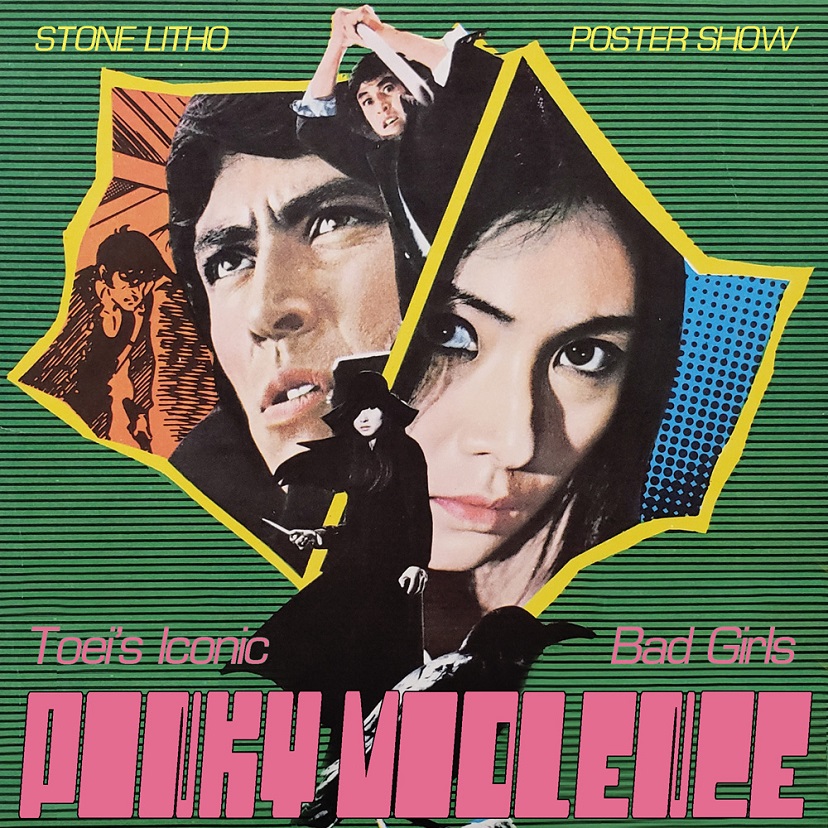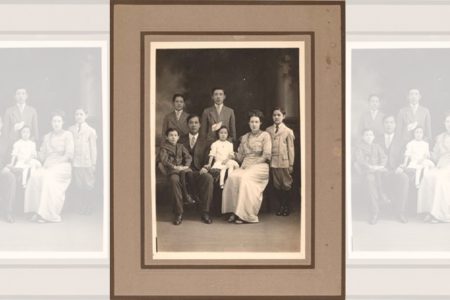Gallery 30 South, at 30 S. Wilson Ave. in Pasadena, is now exhibiting powerful “Pinky Violence” posters – linen-backed, original release posters from Japan that depict that period in Japanese film history when a handful of writers, directors, and stars dedicated almost a decade to producing female-driven action/exploitation films with beautiful young women as stars, frequently with overt messages of empowerment.
These films, many of them produced by Toei Studios, were known as “Pinky Violence” and reached their crescendo in the late 1970s. The films, says Gallery 30 South, are almost single-handedly responsible for the first wave of Japanese feminism.
“By using nudity as a draw for male viewers they were able to subvert the culture away from the chauvinism and misogyny that ruled the day and change the expectations that saddled all young women,” Gallery 30 South said in explaining the exhibition. “These taste-makers had seen the political power of ‘pinku eiga’ (literally translated as ‘pink films’) which were a category of erotic films ranging from sensual to explicit that had ushered in an era of sexual liberation just a few years prior. Those films played primarily in the Japanese equivalent of red light districts with an occasional Art House run.”
In 2011, Alicia Kozma wrote about Pinky Violence films in a thesis as a PhD candidate in the Institute of Communications Research at the University of Illinois:
“Constructed around the character of the ‘sukeban,’ translated as ‘girl boss ‘or ‘bad girl boss,’ and girl gangs in urban Japan, Pinky Violence is primarily concerned with women as independent outlaws operating in a world bound by criminality and matriarchy,” Kozma said in the article. “The films follow their exploits as they struggle to maintain their independence in the face of threats from the male-dominated political system and the traditional criminal underworld. Rather than fit comfortably in their exploitation label, Pinky Violence highlights various intersections of female power and sexuality, creating complex female characters whose actions openly question normative ideas of appropriate female action and gender stratification.”
Matt Kennedy, who owns Gallery 30 South, was the founder of Panik House Entertainment, the first company dedicated to the remastering and release of these films in the United States.
Back in the early 2000s, most of the key art for these films were missing from the Toei Studio vaults, so Kennedy had to contact private collectors all over Japan to source them. He amassed one of the largest and most thorough collections of posters and ephemera dedicated to this niche. The first Panik House titles were released on July 2, 2005, providing an anniversary of sorts for this exhibition.
Gallery 30 South held the first “Art of Pinky Violence” exhibition in November 2009, featuring almost 50 items, most of which are linen-backed original release movie posters.
Linen-backing is a museum-recommended archival preservation process that gives the absolute best presentation to the artwork and significantly increases the value. At Gallery 30 South, all of the linen-backing was done by Poster Mountain, the restoration experts preferred by the Academy of Motion Picture Arts and Sciences.
The exhibition, “Pinky Violence: Shock, Awe, Liberation,” is available for viewing through July 30, Monday through Friday, from 12 noon to 6 p.m., or by appointment after business hours and on weekends.
For more information, visit www.gallery30south.com/pinky-violence.














